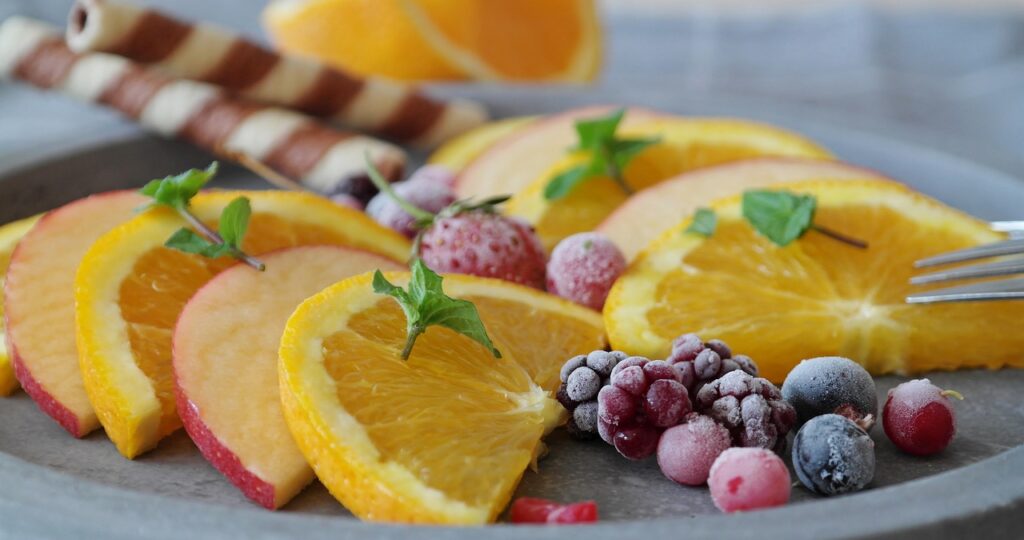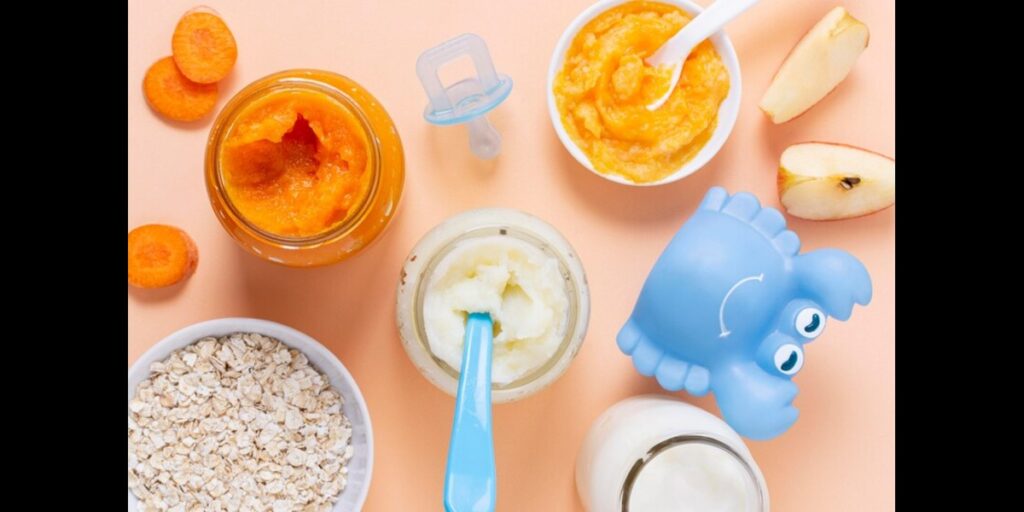
healthy snacks whay are they important for your child
Table of Contents
Introduction: Healthy Snacks – Why They Matter for Your Child’s Well-Being
Healthy snacks play a crucial role in your child’s growth and development. Unlike processed or sugary snacks that offer empty calories, nutrient-rich snacks provide essential vitamins, minerals, and energy needed for daily activities and long-term health. Children are constantly growing, and their nutritional needs differ significantly from adults. Offering them healthy options not only keeps their energy levels steady but also supports their immune system, brain function, and overall physical development.
Moreover, snacking plays a significant role in forming lifelong eating habits. Encouraging children to reach for fruits, vegetables, nuts, and whole grains can help instill good eating patterns that they will carry into adulthood. With the right snacks, you’re not just feeding their hunger—you’re laying the foundation for a healthy future.
Snacking Tips for Kids
- Balance Nutrients: Aim for a balance of proteins, healthy fats, and carbohydrates in your child’s snacks. For example, pair apple slices with peanut butter or offer a small portion of yogurt with berries. This ensures they get sustained energy and a mix of nutrients for optimal growth.
- Portion Control: Kids have smaller stomachs, so their snacks should be appropriately sized. Too much can lead to overeating, while too little might not satisfy their hunger. A good rule of thumb is to offer snacks that are about half the size of a regular meal.
- Offer Variety: Keep snacking interesting by offering different fruits, vegetables, whole grains, and proteins. Introducing new foods regularly helps expand your child’s palate and ensures they get a wide range of nutrients.
- Limit Sugary and Processed Snacks: Encourage healthy choices by limiting sugary snacks like cookies, chips, or candies. Instead, opt for whole foods like fresh fruit, whole-grain crackers, or nuts.
- Involve Your Child: Let your child have a say in snack options. This helps them feel empowered and more likely to enjoy healthy snacks. You can create a list of approved healthy choices and let them pick from it.
By following these tips, you can ensure your child enjoys snacks that are not only tasty but also nutritious.
Set a Schedule

Establishing a consistent snack schedule is essential for maintaining a healthy eating routine. Children thrive on structure, and setting specific times for meals and snacks helps regulate their hunger and prevents unnecessary grazing throughout the day.
- Stick to Regular Intervals: Aim for snacks between meals, such as mid-morning and mid-afternoon, about 2-3 hours after their main meals. This timing helps prevent energy crashes and keeps your child’s metabolism steady.
- Avoid Late-Night Snacking: Late-night snacks can disrupt digestion and affect sleep quality. It’s best to cut off snacking a few hours before bedtime, ensuring your child has enough time to digest their food properly.
- Be Flexible, but Consistent: While it’s important to have a routine, allow some flexibility for special occasions or busier days. However, sticking to a general schedule most of the time helps form healthy habits and prevents overeating or mindless snacking.
By setting a snack schedule, you’re teaching your child to listen to their body’s hunger cues while creating a healthy eating pattern that promotes long-term well-being.
Reach for the Right Kind of Snack
Choosing the right snack is key to supporting your child’s health and development. Not all snacks are created equal, so it’s important to offer options that are both nutritious and satisfying.
- Opt for Whole Foods: Whenever possible, go for whole foods like fruits, vegetables, nuts, seeds, and whole grains. These options are packed with fiber, vitamins, and minerals, providing the fuel your child needs for energy and growth.
- Include Protein and Healthy Fats: Snacks with protein and healthy fats help keep your child full and focused. Examples include cheese sticks, hummus with veggie sticks, or a small handful of almonds. These nutrients help stabilize blood sugar and provide lasting energy.
- Limit Processed Foods: Highly processed snacks, such as chips, candy, or packaged baked goods, often contain excess sugars, unhealthy fats, and artificial ingredients. These snacks may offer a quick burst of energy but can lead to energy crashes and poor nutrition over time.
- Choose Low-Sugar Options: Even snacks marketed as “healthy” can contain a lot of added sugars. Opt for natural sweetness from fruit, or choose unsweetened versions of yogurt, nut butter, or cereal to keep sugar intake in check.
Reaching for the right kinds of snacks ensures your child gets the nutrition they need while developing healthy habits for life.
Try Different Snack Ideas
Offering a variety of snacks can keep things fun and prevent boredom, all while ensuring your child gets a diverse range of nutrients. Here are some creative and nutritious snack ideas to try:
- Fruit and Nut Butter Combos: Pair apple slices, banana, or celery sticks with peanut butter or almond butter for a sweet and satisfying snack that provides healthy fats and proteins.
- Veggie Sticks with Hummus: Carrot sticks, cucumber slices, and bell peppers are great for dipping into hummus. This snack is packed with fiber and plant-based protein.
- DIY Trail Mix: Create your own trail mix by combining nuts, seeds, whole-grain cereal, and a small amount of dried fruit. This offers a great balance of carbs, fats, and protein to keep your child energized.
- Smoothies: Blend up a quick smoothie using fruits like berries, a handful of spinach, and yogurt. You can even sneak in some chia seeds or flaxseeds for extra omega-3s and fiber.
- Whole-Grain Crackers with Cheese: Whole-grain crackers paired with cheese slices make for a crunchy and satisfying snack, giving your child a mix of carbs and protein.
- Greek Yogurt Parfait: Layer Greek yogurt with fresh fruit and a sprinkle of granola for a nutrient-dense snack that’s rich in protein and probiotics.
By mixing up these snack ideas, you can ensure your child stays interested in healthy eating while getting a good balance of nutrients.
Prepare for Unplanned Snacks

Despite your best efforts to stick to a snack schedule, unplanned snacking will inevitably happen. Being prepared with healthy, grab-and-go options can prevent last-minute unhealthy choices and keep your child’s nutrition on track.
- Stock Up on Healthy Options: Keep your pantry and fridge stocked with easy-to-grab healthy snacks like pre-cut fruits and veggies, yogurt, cheese sticks, and whole-grain crackers. When hunger strikes, these nutritious options will be readily available.
- Portion Out Snacks Ahead of Time: Pre-portion snacks into small containers or snack bags to avoid overeating. This is especially helpful for items like nuts, dried fruit, or whole-grain crackers that can be easy to overeat if not measured.
- Have Emergency Snacks Ready: For times when you’re on the go, pack healthy snacks in your bag, car, or your child’s school backpack. Simple items like granola bars (low in sugar), whole-grain rice cakes, or fruit can help curb hunger between meals.
- Teach Mindful Snacking: Encourage your child to eat snacks mindfully rather than out of boredom or habit. Help them understand the difference between real hunger and emotional or boredom-driven eating.
By preparing for unplanned snacks, you can ensure that even spontaneous munching stays healthy and supports your child’s overall nutrition.
Other General Healthy Snacking Tips

In addition to setting schedules and choosing the right snacks, there are some general tips that can make healthy snacking easier and more effective for your child’s overall health.
- Lead by Example: Children often mimic their parents’ behaviors, so if they see you making healthy snack choices, they are more likely to follow suit. Make snacking a family affair where everyone enjoys nutritious options.
- Stay Hydrated: Sometimes, what feels like hunger is actually thirst. Encourage your child to drink water throughout the day and offer water with snacks to ensure they stay hydrated. Avoid sugary drinks like sodas and juices, which can add unnecessary calories.
- Make Snacking Fun: Get creative with snacks by turning them into fun shapes or colorful combinations. You can use cookie cutters for fruits and veggies or create a rainbow platter of different-colored foods to make healthy snacking more appealing.
- Avoid Using Snacks as Rewards: Using snacks as a reward for good behavior can encourage unhealthy relationships with food. Instead, reward your child with activities or experiences, and keep snacking tied to hunger and nutrition.
- Encourage Slow Eating: Teach your child to eat slowly and enjoy their snacks. This helps them tune into their hunger and fullness cues, preventing overeating and promoting mindful eating habits.
By incorporating these general tips, you can make healthy snacking a positive and enjoyable part of your child’s day while supporting their long-term well-being.
FAQs :
Why are healthy snacks important for children?
Healthy snacks are important for children because they provide the essential nutrients and energy needed for their growth, development, and daily activities. Unlike sugary or processed snacks, nutrient-rich options like fruits, vegetables, whole grains, and proteins help support their immune system, brain function, and physical growth. Healthy snacking also helps maintain steady energy levels, preventing mood swings and fatigue, which are common with sugar crashes from unhealthy foods.
Additionally, healthy snacks contribute to developing lifelong eating habits. Introducing children to nutritious foods early on encourages better food choices as they grow, reducing the risk of obesity, diabetes, and other diet-related health issues in the future.
What are some healthy snack ideas for kids?
Here are some healthy snack ideas for kids that are both nutritious and enjoyable:
- Fruit and Nut Butter: Apple slices or banana with peanut or almond butter offer a combination of fiber, vitamins, and healthy fats.
- Veggie Sticks with Hummus: Carrot sticks, cucumber, or bell peppers dipped in hummus provide a crunchy and nutrient-rich option.
- Greek Yogurt Parfait: Layer Greek yogurt with fresh berries and a sprinkle of granola for a protein-packed snack.
- Whole-Grain Crackers with Cheese: Pair whole-grain crackers with cheese slices for a filling and balanced snack.
- Smoothies: Blend fruits like bananas, berries, and spinach with yogurt for a refreshing and nutrient-dense smoothie.
- DIY Trail Mix: Create a custom trail mix with nuts, seeds, whole-grain cereal, and a small handful of dried fruit for a quick and portable snack.
- Hard-Boiled Eggs: These are a great source of protein and healthy fats that can easily be prepared in advance.
These snacks are not only delicious but provide a good mix of essential nutrients to support your child’s growth and energy needs.
What snacks are best for children?
The best snacks for children are those that provide a balance of essential nutrients and keep them satisfied between meals. Here are some top choices:
- Fruits: Fresh fruits like apples, bananas, berries, and oranges are rich in vitamins, fiber, and natural sugars. They are easy to prepare and great for quick energy.
- Vegetable Sticks: Carrots, celery, cucumbers, and bell peppers are high in vitamins and minerals. Pair them with hummus or a yogurt-based dip for added protein and flavor.
- Nuts and Seeds: Almonds, walnuts, sunflower seeds, and pumpkin seeds provide healthy fats, protein, and essential nutrients. Be mindful of portion sizes and any nut allergies.
- Whole-Grain Snacks: Options like whole-grain crackers, popcorn, or oatmeal provide fiber and sustained energy. They are also more filling and help prevent sugar crashes.
- Dairy Products: Low-fat or Greek yogurt, cheese sticks, and cottage cheese offer calcium and protein. These can be combined with fruits or whole-grain crackers for a balanced snack.
- Lean Proteins: Hard-boiled eggs or turkey slices are excellent sources of protein and can help keep children full and focused.
- Smoothies: Homemade smoothies with a mix of fruits, vegetables, and yogurt can be a nutritious and tasty way to sneak in additional servings of fruits and veggies.
Choosing snacks that are high in nutrients and low in added sugars and unhealthy fats will help support your child’s growth, energy levels, and overall health.
What are the benefits of healthy meals and snacks for children?
Healthy meals and snacks offer numerous benefits for children, supporting their overall well-being and development. Here are some key advantages:
- Supports Growth and Development: Nutrient-rich foods provide essential vitamins, minerals, proteins, and healthy fats needed for physical growth, brain development, and overall health.
- Boosts Immune Function: A diet high in fruits, vegetables, and whole grains helps strengthen the immune system, making children more resilient to illnesses and infections.
- Improves Concentration and Learning: Proper nutrition enhances cognitive function, helping children stay focused and perform better in school. Essential nutrients like omega-3 fatty acids, iron, and vitamins play a crucial role in brain health.
- Promotes Healthy Weight: Balanced meals and snacks help regulate appetite and prevent excessive weight gain. Foods high in fiber and protein keep children full longer, reducing the likelihood of unhealthy snacking.
- Boosts Energy Levels: Consuming a mix of carbohydrates, proteins, and fats provides sustained energy throughout the day, preventing energy crashes and irritability.
- Encourages Healthy Eating Habits: Establishing a routine of eating healthy meals and snacks helps children develop positive eating habits that can last a lifetime, reducing the risk of obesity and diet-related health issues.
- Supports Emotional Well-Being: Proper nutrition can impact mood and behavior. Foods rich in nutrients like B vitamins and omega-3 fatty acids have been linked to improved mood and reduced symptoms of anxiety and depression.
Overall, healthy meals and snacks contribute to a child’s physical health, mental well-being, and long-term success.
What are 7 healthy foods for kids?
Here are seven healthy foods that are particularly beneficial for kids:
- Fruits: Fresh fruits like apples, bananas, berries, and oranges are rich in vitamins, fiber, and natural sugars. They provide essential nutrients and energy, making them a perfect, easy snack.
- Vegetables: Carrots, cucumbers, bell peppers, and spinach are packed with vitamins, minerals, and fiber. They can be enjoyed raw, steamed, or added to various dishes.
- Greek Yogurt: This dairy product is high in protein and calcium. It can be served plain or with added fruit and a sprinkle of granola for extra flavor and nutrients.
- Whole Grains: Foods like whole-grain crackers, brown rice, quinoa, and oats are excellent sources of fiber and complex carbohydrates, providing sustained energy and aiding digestion.
- Nuts and Seeds: Almonds, walnuts, chia seeds, and flaxseeds offer healthy fats, protein, and essential nutrients. They are great for snacking or adding to meals, but watch portion sizes due to high calorie content.
- Lean Proteins: Chicken, turkey, and fish are rich in protein and essential amino acids. They support muscle growth and repair and can be included in various meals.
- Legumes: Beans, lentils, and chickpeas are high in protein, fiber, and important vitamins and minerals. They can be added to soups, salads, or made into snacks like hummus.
These foods not only support overall health but also help in maintaining energy levels, enhancing cognitive function, and promoting growth and development.



